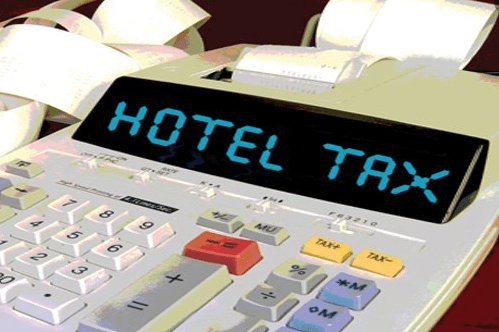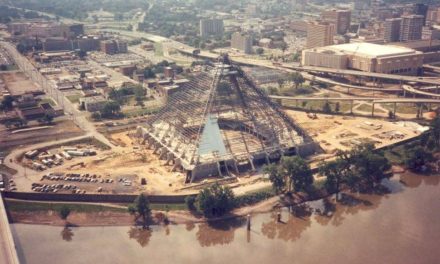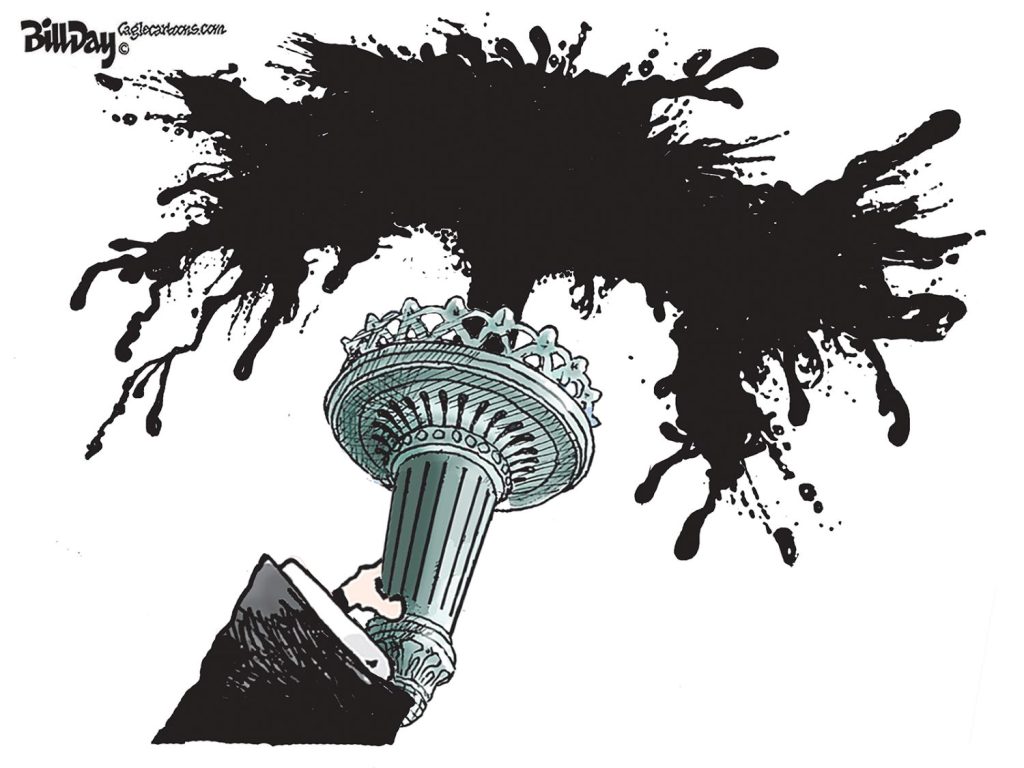Guests in Memphis hotels regularly suffer from sticker shock when they check out.
That’s because Memphis has combined sales and hotel-motel taxes that are higher than 97% of the cities in the U.S.
For example, a room at the Westin Hotel for December 17 may have a daily rate of $215, but the final bill at checkout is $256.24. The $139 room at the Hu Hotel sounds like a great nightly rate but with taxes and fees, it’s actually $170.94. The downtown Sheraton Hotel offers a room for $126 but at checkout, with taxes and fees, it’s $157.30 a night.
That’s because in addition to the room rate, the hotels add 7% state sales tax, 2.75% local option sales tax, 3.5% Memphis hotel-motel tax, and 5% Shelby County hotel-motel tax. In other words, taxes add 18.25% to the hotel’s room rate.
But that’s not all.
There’s also a $2 a night Tourism Improvement District fee, which was the first of its kind in Tennessee, beginning January 1, 2016, although more than 100 other destinations had one. At the time, its justification by tourism and hotel association officials was that it made sense because hotel rates in Memphis were so low and the Memphis Convention & Visitors Bureau (now Memphis Tourism) needed more money to market the city.
Resort Fees, Really?
But the mark-ups at the Westin, Hu, and Sheraton are nothing compared to the Peabody Hotel and the Bass Pro Shops’ Big Cypress Lodge in the The Pyramid. Both of those hotels also add a “resort fee,” the hospitality industry’s version of the wheel tax – and reviled just as much by the people forced to pay it.
The Peabody’s resort fee is $13.95 a night and Big Cypress Lodge charges an eye-popping $40 a night.
With the added resort hotel, a $209 room at the Peabody actually costs $273.54 at check-out. Big Cypress Lodge is even dramatic: a $229 room actually costs $316.70 on the final bill – a 38% increase in the room rate.
The resort fee feels an awfully lot like price gouging.
What the hotel says customers get as a result of the resort fee are largely services long thought to be a routine part of a hotel stay.
The Peabody says its $13.95 fee provides guests with wi-fi, morning coffee, bottled water, phone calls, newspaper, access to gym and pool, and shoe shine. Meanwhile at The Pyramid, Bass Pro Shops says its $40 resort fee gets customers newspaper, gym, pool, towel service, wi-fi, daily parking, and shuttle.
Ranking at the Top
Memphis’s “lodging taxes” – sales taxes and hotel-motel taxes – place the city near the top of the ranking for U.S. cities with the highest lodging taxes, according to the definitive 2024 HVS Lodging Tax Report. The report ranks Memphis as #5 in the U.S. and that’s with it failing to include 0.5%. When the 0.5% is included, it places Memphis at #4 at 18.25%.
According to the report, only Omaha (20.5%), Cincinnati (19.3%), and St. Louis (18.93%) have higher lodging rates than Memphis. By comparison, New York’s rate is 14.75%; Washington, D.C. 15.95%; Los Angeles 15.5%; Miami 14%; and San Francisco 16.75%.
In 1988, the state legislature gave cities the right to enact hotel-motel taxes up to 5%. Memphis passed one and eventually amended it to 3.5%.
The smaller municipalities of Shelby County – Germantown, Bartlett, Collierville, and Arlington – passed the maximum tax of 5%. Millington set its rate at 3% and Lakeland does not have one. It means the Memphis rate is lower than the ones in the four smaller towns whose total lodging tax is 19.75%.
The hotel-motel tax became crucial in 1980 when the Memphis Jobs Conference identified it as the source of funds that allowed Memphis to move tourism from an afterthought into a major economic priority of the city. By 1987, state law was amended to include the Convention & Visitors Bureau at a higher level and to guarantee a yearly increase of 5%. As a result, the $750 million tourism industry of 1985 grew to $1.5 billion by 1993 and $2 billion by 1996. Today, it has a $4.2 billion economic impact.
Early on, it was the major source of money for Memphis Tourism and for paying the bonds for the Convention Center. Because Tourism Development Zone revenues could be used for the Convention Center, city and county governments moved the hotel-motel taxes as a source to pay for the building of FedExForum.
It also was the source of money to pay for the $500,000 renovation of the music hall in 1991; $200,000 for an acoustic shell for the Memphis Symphony; $11.5 million for improvements to The Pyramid, and $685,000 for a new scoreboard for The Pyramid.
A Broader Role
At the direction of Shelby County Mayor A C Wharton, the Convention and Visitors Bureau funding was frozen although state law required a 5% increase each year. Before the correct funding was restored, tourism marketing funding had taken a $11 million hit.
Earlier this year, it again came in to play for FedExForum again as local government devised a way to pay for $550 million in renovations that the Grizzlies are demanding for the 20-year-old arena.
To that end, the Tennessee Legislature changed the law to set these new rules for the hotel-motel revenues:
- When Shelby County collects the hotel-motel tax, Memphis Tourism receives 35.75% of the tax revenue first.
- Shelby County receives up to $11.4 million annually to cover debt on the existing FedExForum, the future $550 million in renovations and the county’s current agreement with the Memphis Grizzlies to cover operating shortfalls through the end of the current lease (2028-29 NBA season).
- After that, 25.5% of the remaining revenue goes to Memphis Tourism, which will receive no more than 61.25% of the hotel-motel tax in a year.
- If, after Memphis Tourism receives its first cut, there is not enough money to fund up to $11.4 million worth of debt service at FedExForum, Memphis Tourism will give money out of its share to the county to make up the difference between what the county has on hand and the $11.4 million needed.
- After the new FedExForum (renovated arena) bonds are paid off, Memphis Tourism receives 61.25% of the hotel-motel tax money, and the county can allocate 38.75% to other allowed uses.
The hotel-motel tax has grown from a largely ignored, modest source of money for the convention center in 1969 to a go-to source of money by 1991 to bring the Grizzlies to Memphis and now as the money to keep the NBA team here.
For politicians, the hotel-motel fund was seen as a guilt-free source of money on the proposition that it’s being paid by people from outside our community. That’s not to say we shouldn’t feel guilty for the high surcharge we are charging hotel guests to who come to Memphis.
**
Join me at the Smart City Memphis Facebook page and on Instagram where these blog posts are published along with occasional articles, reports, and commentaries that are relevant to Memphis.




